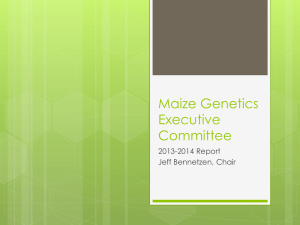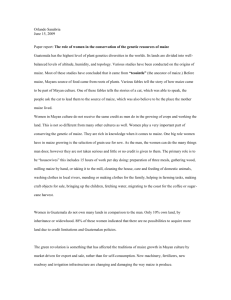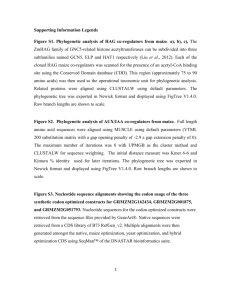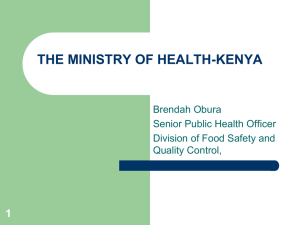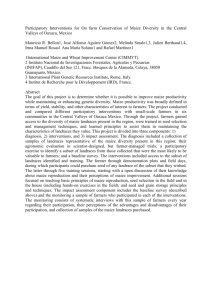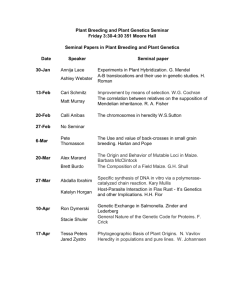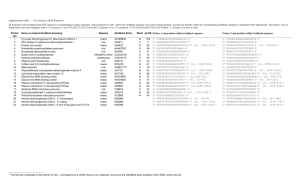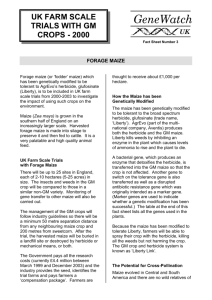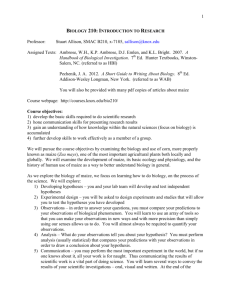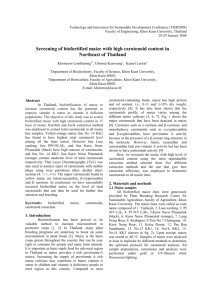Largest evolutionary study of sponges sheds new light on animal
advertisement
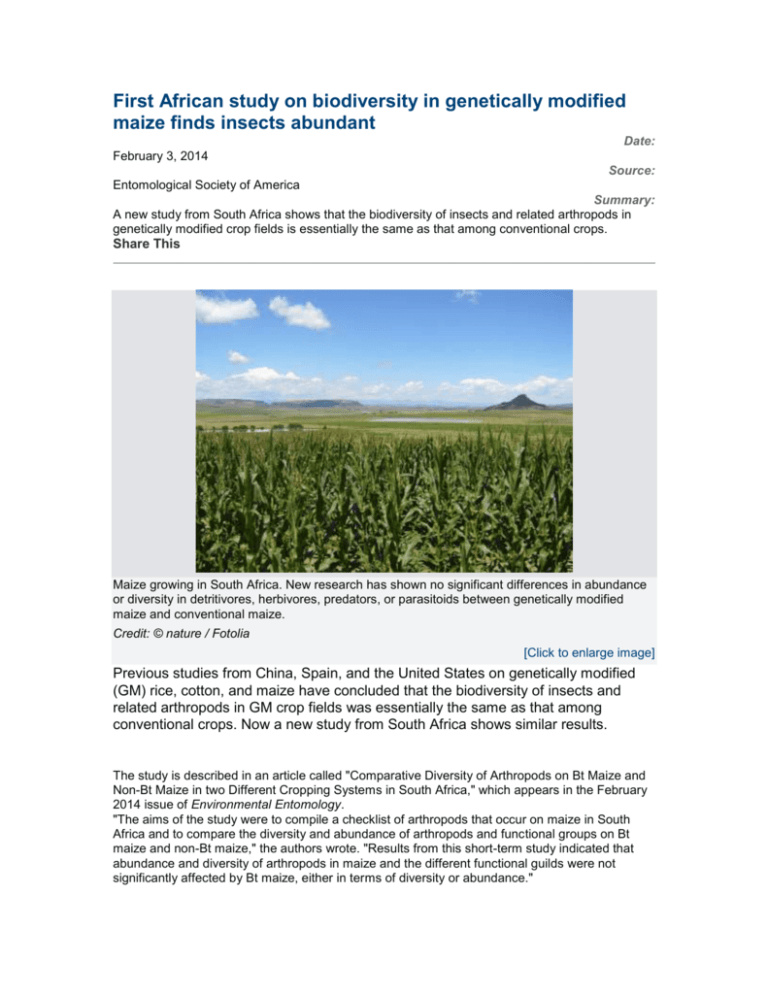
First African study on biodiversity in genetically modified maize finds insects abundant Date: February 3, 2014 Source: Entomological Society of America Summary: A new study from South Africa shows that the biodiversity of insects and related arthropods in genetically modified crop fields is essentially the same as that among conventional crops. Share This Maize growing in South Africa. New research has shown no significant differences in abundance or diversity in detritivores, herbivores, predators, or parasitoids between genetically modified maize and conventional maize. Credit: © nature / Fotolia [Click to enlarge image] Previous studies from China, Spain, and the United States on genetically modified (GM) rice, cotton, and maize have concluded that the biodiversity of insects and related arthropods in GM crop fields was essentially the same as that among conventional crops. Now a new study from South Africa shows similar results. The study is described in an article called "Comparative Diversity of Arthropods on Bt Maize and Non-Bt Maize in two Different Cropping Systems in South Africa," which appears in the February 2014 issue of Environmental Entomology. "The aims of the study were to compile a checklist of arthropods that occur on maize in South Africa and to compare the diversity and abundance of arthropods and functional groups on Bt maize and non-Bt maize," the authors wrote. "Results from this short-term study indicated that abundance and diversity of arthropods in maize and the different functional guilds were not significantly affected by Bt maize, either in terms of diversity or abundance." A total of 8,771 arthropod individuals, comprising 288 morphospecies, were collected from 480 plants sampled from Bt maize and non-Bt maize fields over a two-year period. The researchers found no significant differences in abundance or diversity in detritivores, herbivores, predators, or parasitoids. "The results of our study indicate that arthropod diversity, even in high-input farming systems, is as high as in subsistence farming systems" said Dr. Johnnie van den Berg, a professor at NorthWest University and one of the co-authors of the article. "More recently, surveys of arthropod and plant beta-diversity inside and adjacent to maize fields have been completed during which 30,000 arthropods and 15,000 plant individuals were surveyed along a 1,000 kilometer transect. It seems that maize field diversity is homogenized and field margins had a high beta diversity," he added.

